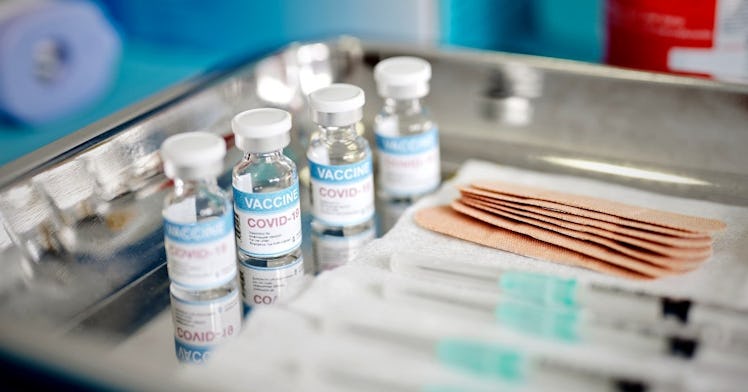Latest COVID Booster Study Suggests a Fourth Dose Could Be on the Table
But don’t rush out for another shot just yet.

According to new data from the Centers for Disease Control and Prevention (CDC), a booster dose of the COVID vaccine may only be effective for around four months. Collected during the Delta and Omicron surges, the data shows that vaccines were effective at preventing a higher number of hospitalizations during the first two months after a booster vaccine, but that effectiveness decreased by the fourth month after a booster. But what does this mean? Will there be more booster doses on the way?
Here’s everything you need to know about boosters, long-term confidence in vaccine efficacy, and whether you’ll need a fourth vaccine in the future, as parents of kids under 5 wait for their kiddos to get vaccinated at all.
What to Know About Booster Effectiveness
The CDC study was conducted from August 2021 to January 2022, which includes the surge of COVID cases from December. The surge, prompted by the highly contagious Omicron variant, caused cases to rise significantly in the latter half of 2021 after a relatively calm summer, with hospitalizations and deaths rising in its wake. The study analyzed records for 241,204 emergency room and urgent care visits but did not delineate demographic factors such as age, immunity status, or if the third vaccine was a booster or as part of the recommended course of initial vaccination for some immunocompromised people.
Researchers found that, in people who had received a booster, vaccines were effective at preventing 91% of hospitalizations within two months after the booster. By four months post-booster, that effectiveness dropped to 78%. That’s still considered a highly effective vaccine, but the drop in efficacy has led some to wonder — publicly — whether or not a fourth dose will ever be on the table for the greater public.
Do You Need a Fourth-Dose Booster?
It may seem, based on the results of this study, that we should all line up for another booster, but Dr. Anthony Fauci, director of the National Institute of Allergy and Infectious Diseases and the Chief Medical Advisor to the President, says this might not be the case for everyone. “There may be the need for yet again another boost — in this case, a fourth-dose boost for an individual receiving the mRNA [vaccine]” but that it “could be based on age, as well as underlying conditions,” Fauci said in a press conference.
On the likelihood of a fourth booster being recommended, Fauci added: “It very likely will take into account what subset of people have a diminished, or not, protection against the important parameters such as hospitalization.” In other words, decreased protection against infection may not be a reason to call for another booster if protection against severe COVID and hospitalization remains high. So don’t go lining up at Walgreens just yet.
Research out of Israel, which has already instituted a fourth booster for most residents, shows that the additional jab was not as effective against Omicron as scientists had hoped. “The vaccine, which was very effective against the previous strains, is less effective against the Omicron strain,” Harvard epidemiologist and co-author of the study Gili Regev-Yochay, M.D. told The Times of Israel.
Will COVID Vaccines Be Given Yearly?
By now, we’re all used to getting a flu vaccine every year. Like holiday shopping, the annual flu vaccine is just something most people do as a matter of course in the winter. For a while now, there’s been speculation that an annual COVID vaccine will also become part and parcel of our seasonal routine. But last week, Dr. Fauci said that might not be necessary for everyone.
“It will depend on who you are,” Fauci told the Financial Times, “but if you are a normal, healthy 30-year-old person with no underlying conditions, you might need a booster only every four or five years.”
One thing is certain — COVID is still such a new virus that scientists still have much to learn about how it mutates and how those mutations react to current vaccine technology.